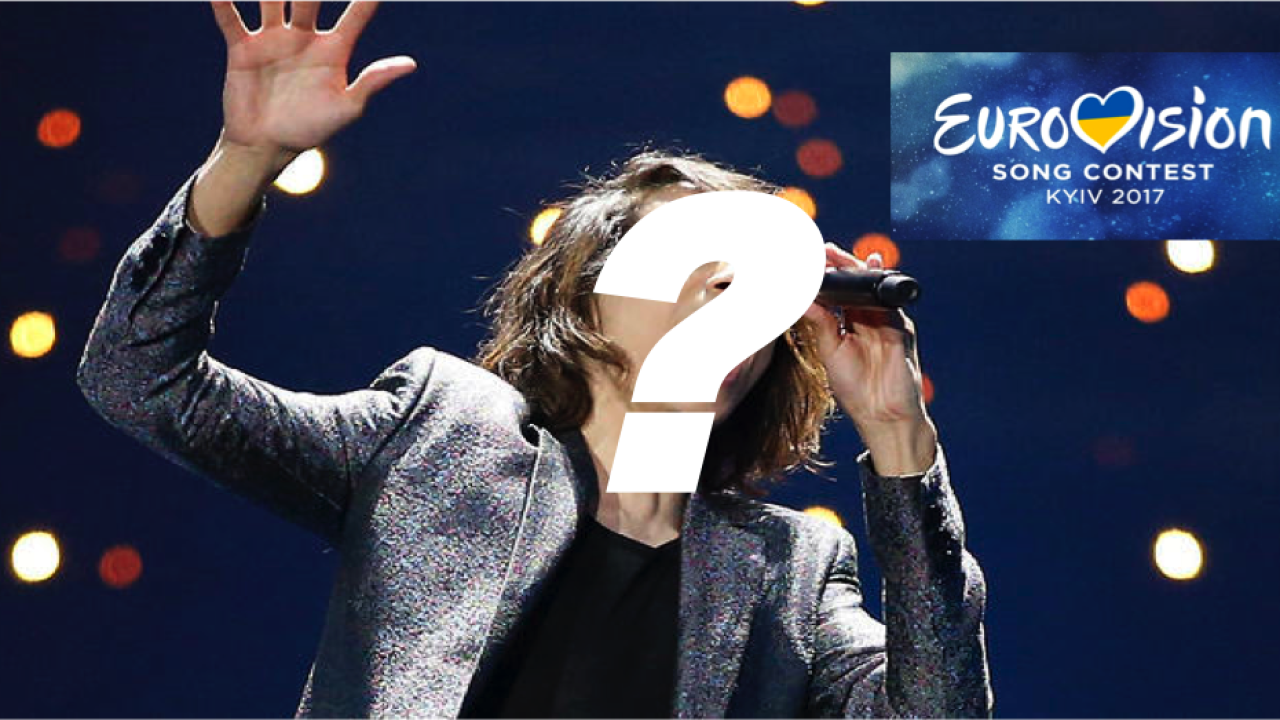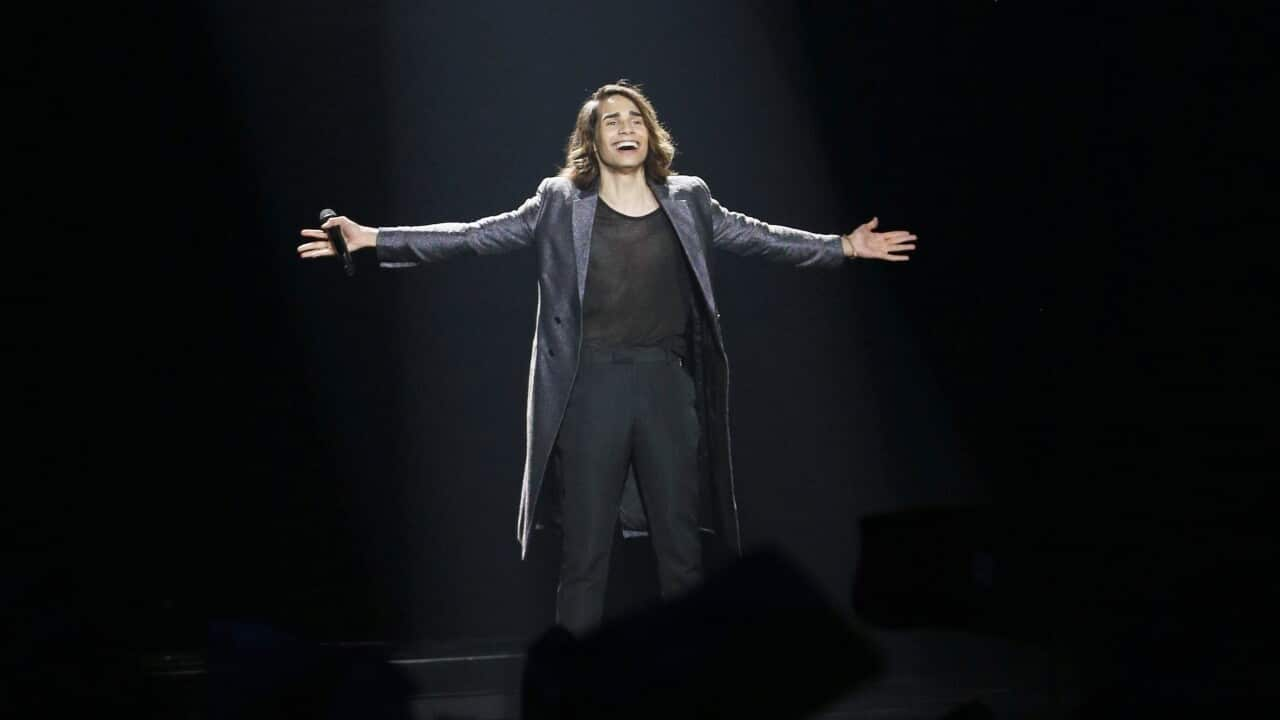Portuguese entrant Salvador Sobral over the weekend.
The 26-year-old singer grew up in Portugal's capital of Lisbon. While studying psychology at university, he moved to Mallorca and began singing in bars. After discovering his love for singing, left the psychology program, and enrolled at a music school. He also appeared on Ídolos, the Portugeuse version of Australian Idol.
The singer's Eurovision track 'Amar Pelos Dois' translates to 'Love for Both', and was written by his sister Luisa Sobral, who Salvador is extremely close to. Luisa is a talented performer and songwriter in her own right, placing third on the first season of Ídolos.
The song speaks of finding strength in one's heart, and learning self-love after losing hope in yourself. However, the song - particularly the last line, 'My heart can love for us both' - took on a very physical meaning as well as the intended metaphorical theme of loving yourself.
Salvador has a life-threatening heart condition, which affected him severely during the initial stages of the competition. While competing in Portugal's national competition for Eurovision selection, complications occurred and he required surgery, but ended up returning to win the title while still in recovery.
Then, at the beginning of Eurovision preparation, Salvador was told by doctors that he would not be able to leave Portugal for the full two-week rehearsal period in Kyiv. Luckily, the European Broadcasting Union sanctioned Luisa to stand in for him during the technical rehearsals.
While Salvador had tried to keep details of his health issues away from the press out of fear of it overshadowing his powerful song, he and Luisa soon realised they could no longer keep it a secret. Luisa confirmed Salvador's heart condition to Portuguese press in a statement last week, just before the competition's Grand Final.
Luisa joined Salvador on stage for his Grand Final performance, reprising 'Amar Pelos Dois' as a duet.
The humility and amazing sense of humour shown by Salvador and Luisa throughout the contest won them overwhelming support on social media, particularly after the public found out about the difficult journey the family had faced to get to the competition. The duo's eccenticity and heartwarming wit gained them fans from all across the world.
He also won many fans with his acceptance speech, which urged people to listen to music with a heartfelt message, rather than "disposable music".
"I want to say that we live in a world of disposable music - fast food music without any content," said Salvador. "I think this could be a victory for music, for people that make music that actually means something. Music is not fireworks, music is feeling - so let's try to change this and bring music back, which is what really matters."
Music is not fireworks, music is feeling - so let's try to change this and bring music back, which is what really matters.
Salvador and Luisa's win for Portugal marks the country's first-ever victory in the Eurovision Song Contest after 53 years of competing - the longest-running winless streak in the competition's history.



